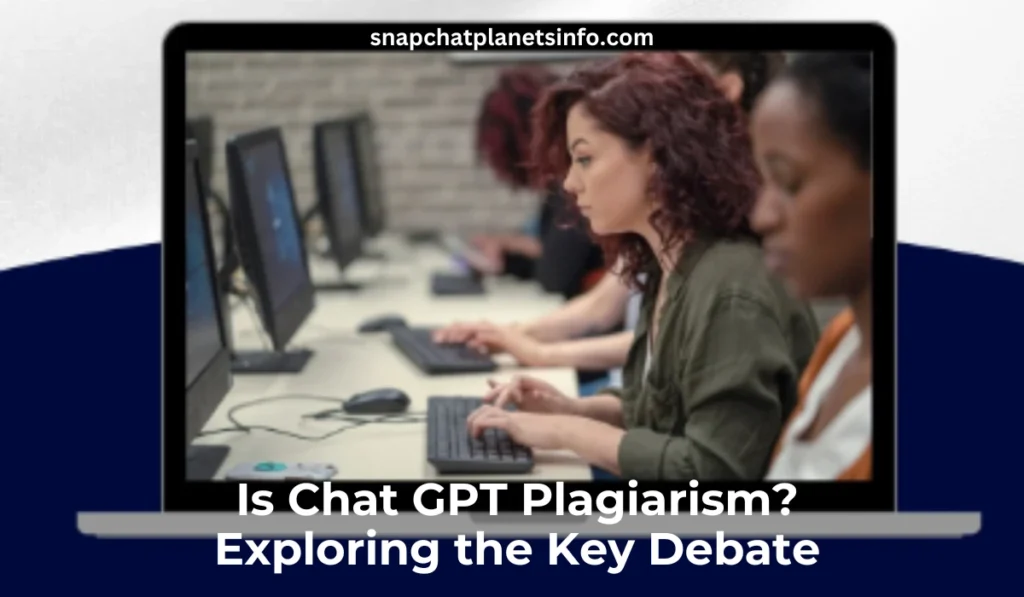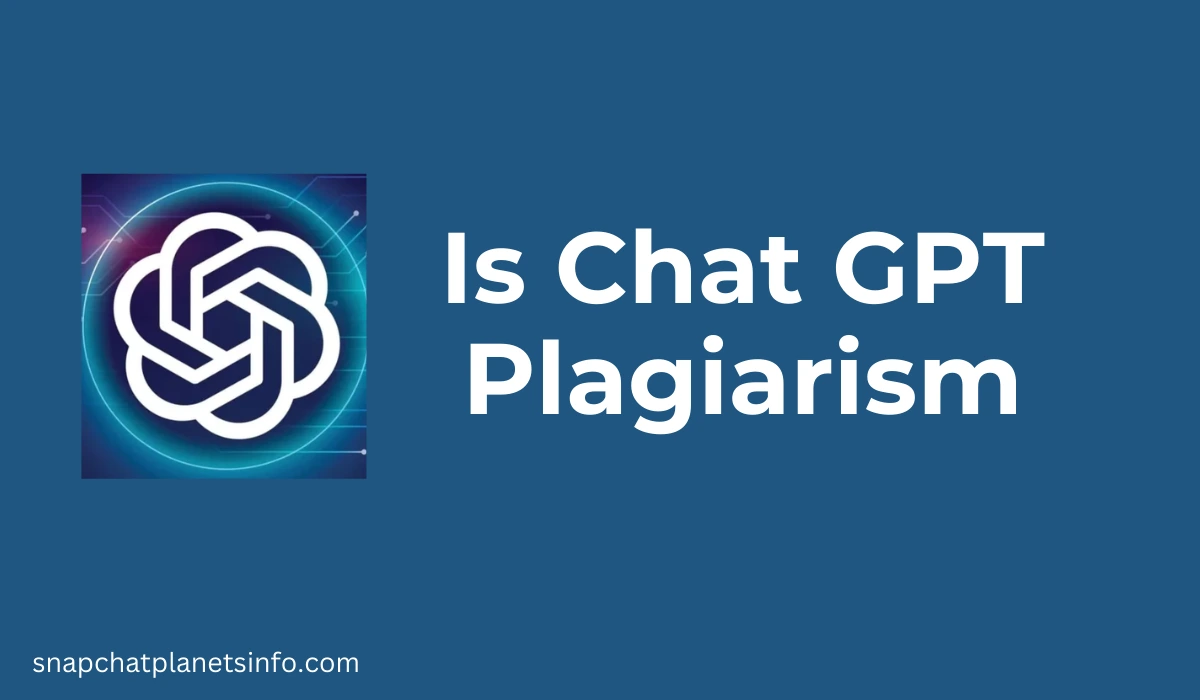Artificial intelligence has revolutionized the way content is created. With the rise of AI-powered tools like ChatGPT, many users wonder: Is Chat GPT Plagiarism? The question arises because AI-generated content resembles human writing, leading to concerns about originality, ethical usage, and academic integrity. In this article, we will explore how ChatGPT works, whether its content can be considered plagiarism, and what users should know about AI detection tools and ethical considerations.
Understanding ChatGPT and How It Generates Content
To determine whether ChatGPT commits plagiarism, it is essential to understand how the AI model creates text. ChatGPT is a large language model (LLM) that has been trained on massive datasets containing various text sources. It does not copy text verbatim from a single source but instead predicts word patterns based on its training data.
Additional Resource: online video translators
When a user inputs a query, ChatGPT analyzes the prompt and generates a response by predicting the most logical sequence of words. This means that while it can produce content that appears original, it does not actually copy-paste existing content from websites or books. Instead, it creates new sentences based on learned structures, making its outputs unique in most cases.
Is Chat GPT Plagiarism? Exploring the Key Debate

From a technical perspective, ChatGPT does not engage in plagiarism because it does not directly reproduce content from its training data. However, there are certain situations where AI-generated text might resemble existing content:
- Similar Sentence Structure – Since ChatGPT predicts words based on common language patterns, it may generate sentences that are similar to existing ones.
- Commonly Used Phrases – If a widely used phrase or statement appears in AI-generated content, it is not necessarily plagiarism, but it could raise concerns.
- Repetitive or Generic Information – AI relies on patterns, so it might sometimes produce generic text that resembles publicly available content.
For these reasons, many users ask: Is Chat GPT Plagiarism-free? The answer largely depends on how the content is used and whether proper credit is given when necessary.
Read more: Glm 4 9b chat gptq int4
AI-Generated Content vs. Traditional Plagiarism
To better understand Is Chat GPT Plagiarism, let’s compare AI-generated text with traditional plagiarism:
| Aspect | Traditional Plagiarism | AI-Generated Content |
|---|---|---|
| Direct Copying | Copies text word-for-word | Generates new text based on patterns |
| Source Attribution | Requires citation | Does not reference sources |
| Ethical Considerations | Unethical and violates copyright | Needs proper use and disclosure |
| Detection by Tools | Easily detected | AI detection tools are improving |
As seen in the table, AI-generated content differs from traditional plagiarism. However, ethical concerns still exist, especially in academic and professional settings.
Can AI-Generated Content Be Detected?
Even though ChatGPT does not plagiarize in the conventional sense, AI-generated content can still be detected. Many plagiarism checkers and AI-detection tools are being developed to differentiate between human-written and AI-generated text.
Some of the most popular AI detection tools include:
- Turnitin – A widely used plagiarism checker that has incorporated AI-detection capabilities.
- GPTZero – Specifically designed to identify AI-generated content.
- Winston AI – Detects AI-written text and helps verify originality.
These tools analyze word choice, sentence structure, and probability models to determine whether a piece of text was generated by an AI. This is why educational institutions and businesses are increasingly monitoring AI-assisted writing to maintain authenticity.
Ethical Concerns: Should You Use AI for Writing?
Even if ChatGPT does not plagiarize, the ethical implications of using AI for content creation remain an important discussion. Some key concerns include:
- Academic Integrity – Submitting AI-generated essays or assignments without acknowledgment can be considered cheating.
- Misleading Authorship – Claiming AI-generated content as personal work without proper disclosure can lead to ethical issues.
- Lack of Creativity – AI can generate content, but it lacks the depth, nuance, and human creativity found in original writing.
To use ChatGPT ethically, users should consider:
- Editing and refining AI-generated text before publishing.
- Using AI as a research assistant, not as a full content creator.
- Providing citations and attributions when using AI-generated information.
How to Ensure Your Content Is Not AI Plagiarized?
If you are concerned about whether your AI-generated content might be flagged as plagiarized, consider these steps:
- Run Content Through Plagiarism Checkers – Use tools like Grammarly, Copyscape, or Turnitin.
- Edit and Rephrase AI Text – Avoid copying AI responses verbatim; instead, rewrite and refine them.
- Add Your Own Insights and Research – AI should assist, not replace, human effort.
- Use Proper Citations – If AI provides factual information, verify and cite sources manually.
By following these guidelines, users can ensure that AI-generated content remains ethical and original.
Is Chat GPT Plagiarism? Uncovering the Truth
With artificial intelligence transforming content creation, many wonder: Is Chat GPT Plagiarism? AI-generated text raises concerns about originality, academic integrity, and ethical writing practices. While ChatGPT does not directly copy from sources, its responses can sometimes resemble existing content. As AI detection tools become more advanced, distinguishing between human and AI-written text is crucial.
Understanding how ChatGPT generates content and ensuring responsible usage is essential for maintaining credibility. This article explores whether AI-written text qualifies as plagiarism, how to use it ethically, and what precautions to take when relying on ChatGPT for content creation.
Read more: Wildflowereyes rook chat stories
Frequently Asked Questions
Can ChatGPT copy content from books or websites?
No, ChatGPT does not have direct access to books or websites. It generates responses based on its training data and learned patterns.
Is ChatGPT-generated text considered original?
Yes, ChatGPT generates new content dynamically. However, AI-generated content should still be reviewed and edited to ensure uniqueness.
Can universities detect AI-generated assignments?
Yes, institutions use AI-detection tools like Turnitin and GPTZero to identify AI-written content in academic work.
How can I ensure my AI-generated content is ethical?
To use AI ethically, always edit AI-generated text, verify information, and provide citations when needed.
Conclusion
So, Is Chat GPT Plagiarism? The answer is no—ChatGPT generates unique content by predicting word patterns rather than copying existing sources. However, ethical concerns arise when AI-generated content is used without proper acknowledgment. While AI detection tools can identify AI-written text, responsible usage is key. To maintain integrity, users should edit, fact-check, and provide citations when necessary. ChatGPT is a powerful tool, but human creativity and critical thinking remain essential. By using AI ethically, we can enhance content creation while ensuring originality and trust in academic and professional settings.
As AI technology advances, more institutions and platforms will implement AI detection measures to preserve originality. This is why it is essential to edit, verify, and properly cite AI-assisted content, maintaining a balance between innovation and integrity.
